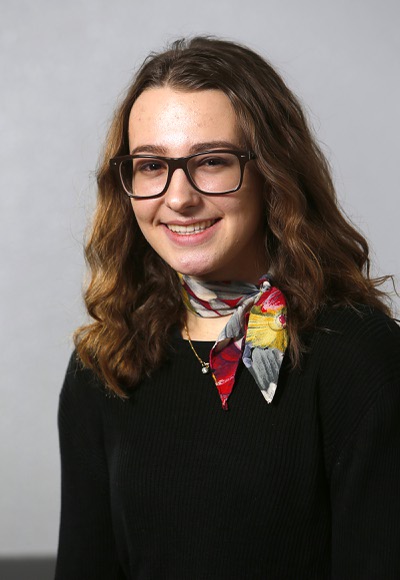Thursday, Dec. 29, 2016 | 2 a.m.
View more of the Sun's opinion section
View more of the Sun's opinion section
Related content
About 1,000 students from high schools throughout Southern Nevada participated in the 60th annual Sun Youth Forum on Nov. 29. The students were divided into groups to discuss a variety of topics. A representative was chosen from each group to write a column about the students’ findings. This essay addresses the issues covered by the group Potpourri.
At the Sun Youth Forum, our panel discussed eclectic topics ranging from the regulation of violence in video games to a cost-benefit analysis of credit cards and debit cards. My room featured students from various Las Vegas Valley high schools with diverse experiences and perspectives, which ensured that our conversation was always entertaining.
Our room’s first topic, “Is animal testing justified? Should there be a ban?” was one of the most intense. We came to a consensus about the value of cosmetic testing, agreeing that it was avoidable given the sufficient scientific knowledge base about noxious chemicals and the disconnect between animal and human skin. There was a distinct schism between proponents of animal rights and those believing that animals had none — some claiming they were inferior to humans, others maintaining that they were equal and a few philosophically arguing that rights were neither quantifiable nor qualifiable. However, we eventually came to the general conclusion that despite not having the same complex rights as humans, they undoubtedly deserve proper, ethical treatment. Sensible regulations were thus viewed favorably. Moreover, we judged that alternatives were imperative in the long run, but that as of now, testing for medical purposes on creatures is a necessary evil. Until we can mass produce alternate technology such as stem cells, which are presently inhibitively expensive, we must rely on animals when necessary. A current ban would therefore be inefficient considering the lack of practical substitutes.
As our panel discussed miscellaneous themes with a relatively short period to reach conclusions, we then transitioned between topics in an attempt to select interesting questions while avoiding overly contentious ones. The objectifying character of beauty pageants seemed to be a significant issue. This time, however, the chasm was noticeably more along gender lines. Male students attempted to defend beauty pageants by asserting that contestants were asked open-ended questions and vetted with respect to their educational history when applying. In addition, they said that females “worked hard to make themselves look pretty,” so why not appreciate that beauty? Female students answered that despite those efforts, objectively, pageants still degraded women as they celebrated fortunate genetic outcomes. Furthermore, the females in the room held that the ethical justification of beauty pageants and rationale behind their acceptability held no relevance; the question was merely asking if they objectify women, not whether they were subjectively good or bad. The men finally agreed that women were in fact being objectified. Discarding youth pageants, the room as a whole concurred that contestants were aware of the process and had the freedom to partake in it if they chose to do so; we were not judges of individuals’ decisions to either participate or watch.
In fact, free will was the overarching theme throughout the forum. For instance, when evaluating the effects of social media, video game violence and internet access, we unanimously deemed moderation to be the solution because we were taking into account that people have differing circumstances and individual personalities.
Our nation is standing at a historic fork in the road, and we can choose to either regress or progress. Room 206 embodied this common understanding: Regardless of the verdict, compromise is the sine qua non for our prosperity and longevity as a people.
Alexandra Veyne is a senior at Coronado High School.


Join the Discussion:
Check this out for a full explanation of our conversion to the LiveFyre commenting system and instructions on how to sign up for an account.
Full comments policy